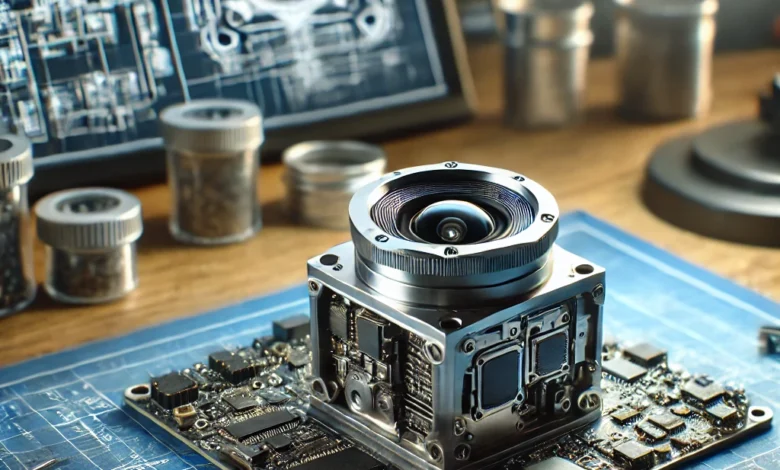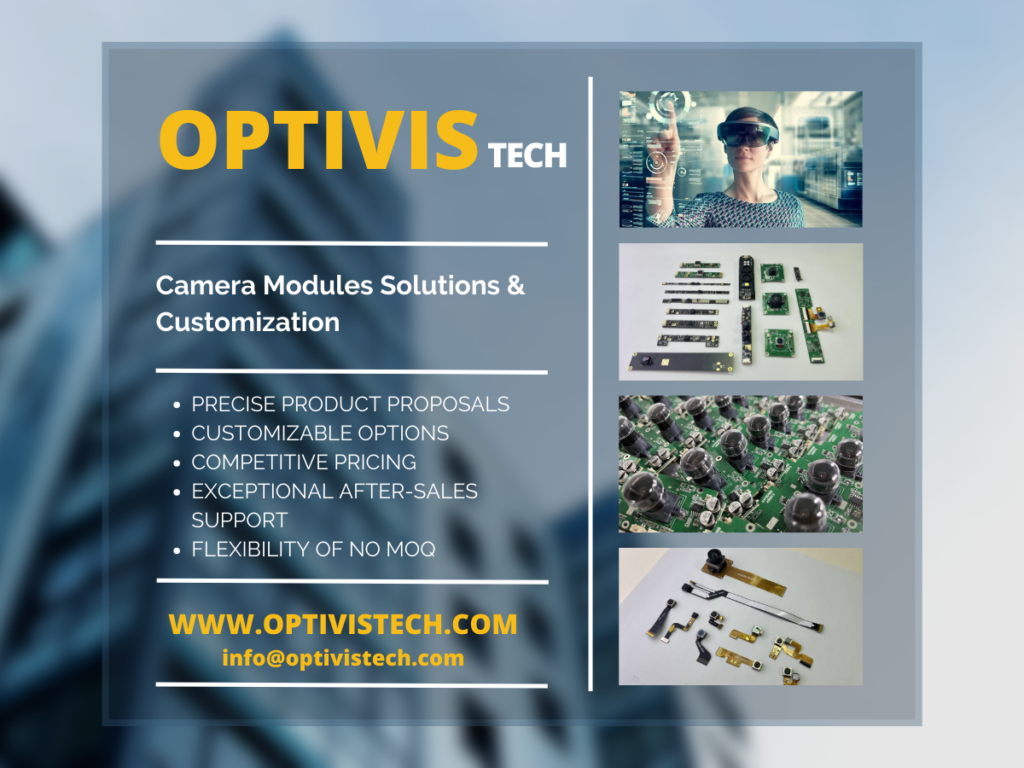Tailor-Made Solutions: The Benefits of Custom Camera Module Design

In an age where technological advancements evolve faster than ever, innovation becomes the backbone of various industries. Among these, camera technology stands at the forefront, with demands for higher quality, greater efficiency, and specialized solutions growing continuously. Enter the world of custom camera module design — a pivotal game changer offering tailor-made solutions to industries that require more than just standard, off-the-shelf camera technology.
Custom camera module design has revolutionized how businesses approach their visual capture needs. Whether it’s for cutting-edge autonomous vehicles, high-end medical equipment, or everyday consumer electronics, custom-designed camera modules provide unique solutions to fit specific requirements. The ability to fine-tune every component to meet exact needs sets this process apart from using general-purpose camera systems. But what exactly does this entail, and why are businesses choosing custom solutions over mass-produced alternatives? Let’s dive into the many benefits of custom camera module design.
What Is Custom Camera Module Design?
Custom camera module design refers to the process of building a camera module specifically tailored to the unique needs of a device or system. Unlike off-the-shelf products that come in pre-packaged forms, custom designs allow developers to select and configure every component, from the lens and sensor to the software, circuit boards, and housing.
This specialized approach not only provides a higher degree of precision but also ensures that the camera module meets specific performance, environmental, and aesthetic needs. It is akin to having a bespoke suit made instead of buying one off the rack — everything is measured and crafted to fit the unique requirements of the project.
Flexibility and Precision in Design
One of the most significant advantages of custom camera modules is the incredible flexibility they offer. Every aspect, from the size of the lens to the resolution of the image sensor, can be customized. This level of control enables companies to produce a camera module that meets exact specifications, ensuring the highest quality and performance for the intended application.
For instance, a camera module for a medical imaging device might require a highly sensitive sensor capable of capturing minute details, while a camera for a drone may need to be lightweight and energy-efficient. Custom camera module design allows manufacturers to tweak each component to suit their needs perfectly, offering the precision and flexibility that pre-built solutions simply can’t provide.

To buy custom camera module design, visit https://www.optivistech.com/
Tailoring for Industry-Specific Needs
Different industries often have distinct requirements when it comes to camera technology. A security camera for a high-risk facility will need to prioritize durability and night vision capabilities, while a camera used in a smartphone will focus more on image quality and compactness.
Custom camera modules are designed to meet these industry-specific needs. In the healthcare sector, for example, cameras used in endoscopic or robotic surgery require high-resolution imaging with minimal lag. These specialized modules allow doctors to see in real-time with clarity, which can be life-saving. Meanwhile, in the automotive industry, cameras for autonomous vehicles require a combination of durability and fast response times to detect and react to obstacles in real-time.
Enhanced Performance with Specialized Components
The heart of any camera module is the individual components it’s built from — the sensor, lens, and software. When designing a custom camera module, engineers can select high-end, specialized components to enhance overall performance. For instance, using a low-light sensor for night surveillance or incorporating infrared lenses for heat detection.
This tailored selection significantly improves image quality and functionality. Custom camera modules can capture sharper, clearer images with less distortion, better color reproduction, and improved dynamic range. With advanced processing capabilities, these modules can also enable features like facial recognition, motion tracking, and object detection with greater accuracy.
Meeting the Challenges of Emerging Technologies
As technology continues to push forward, new fields like artificial intelligence (AI), augmented reality (AR), virtual reality (VR), and autonomous systems are demanding more from camera modules. Off-the-shelf camera solutions often fail to keep up with these fast-moving industries.
Custom camera module designs, however, can adapt to the needs of these cutting-edge applications. For instance, AI-based systems require cameras with rapid data processing capabilities and exceptional image recognition accuracy. Custom modules can be optimized to handle these demands, enabling seamless integration with AI software to deliver superior performance.
Similarly, AR/VR systems rely heavily on cameras that can track motion accurately and process information in real-time. Custom designs provide the perfect solution by incorporating precise sensors and high-speed processing units.
Compact and Lightweight Designs
In modern technology, especially in fields like robotics, wearables, and smartphones, size and weight are critical factors. As devices become smaller and more portable, custom camera modules provide the advantage of creating highly compact designs without compromising performance.
Take, for instance, a small consumer drone. The camera it carries needs to be lightweight to prevent excessive power drain, while also providing high-quality images and videos. Custom camera modules allow for miniaturization while ensuring that performance metrics, such as resolution and frame rates, remain top-notch.
Integration with Existing Systems
One major benefit of a custom camera module is its seamless integration with existing hardware and software systems. Unlike off-the-shelf solutions, which may require complicated adjustments or workarounds, custom camera modules are designed from the ground up to fit into the specific ecosystem they are intended for.
This compatibility ensures smoother communication between the camera and other components, leading to more efficient operation. For example, a camera in an industrial robot needs to work flawlessly with the robotic arm’s control system to ensure precise movement. A custom camera module can be programmed to work perfectly with the robot’s software, ensuring smooth, real-time coordination.
Improved Power Efficiency
Custom-designed camera modules can also be optimized for power efficiency, a critical factor in battery-operated devices like drones, smartphones, and wearable technology. By customizing components such as image sensors and processors, developers can reduce energy consumption without sacrificing performance.
For instance, an outdoor security camera may need to operate continuously for long periods in low-power mode, activating only when motion is detected. A custom design ensures that the camera’s power use is fine-tuned to extend battery life while still delivering excellent performance.
Ensuring Long-Term Scalability
As businesses grow and evolve, so do their technological needs. A custom camera module can be designed with scalability in mind, allowing for future expansions or upgrades. This approach ensures that a company’s investment in technology remains relevant even as new advancements are introduced.
For instance, a company developing autonomous vehicles may need cameras that can support higher resolution sensors or new AI capabilities in the future. Custom modules provide the flexibility to add new features or improve performance without the need for a complete system overhaul.
Customization for Harsh Environments
Many industries operate in environments where standard camera modules would fail. From extreme temperatures to heavy vibrations and high humidity, certain conditions demand more robust designs. Custom camera modules can be built specifically to withstand these harsh environments.
For example, in aerospace, cameras need to handle intense acceleration and vibration without losing image quality. In such cases, custom designs incorporate shock-absorbing materials, specialized housings, and reinforced internal components to ensure that the camera performs reliably even in the toughest conditions.
Cost-Effectiveness in the Long Run
While custom camera modules may have higher upfront costs than off-the-shelf solutions, they can be more cost-effective in the long run. By designing a module specifically for a particular application, businesses can avoid the frequent replacements, repairs, or workarounds often required with generic solutions.
Additionally, a custom camera module’s efficiency, performance, and durability can lead to reduced operational costs, improved workflow, and enhanced product lifecycles. Over time, these benefits far outweigh the initial investment, providing a better return on investment.
Proprietary Control and Intellectual Property Advantages
Custom camera modules also offer businesses the advantage of proprietary control. Owning the design and technology of the camera module allows for complete control over how it’s used and modified. It can also prevent competitors from using the same technology, providing a distinct competitive advantage.
Moreover, companies can protect their custom designs through patents, ensuring that they maintain exclusive rights to the innovations and technologies developed within their camera systems.
Streamlined Prototyping and Development Process
Custom camera module design can also streamline the development process, especially during prototyping phases. Engineers can design and test a prototype quickly, making necessary adjustments along the way. This flexibility speeds up the development cycle, allowing companies to bring their products to market faster.
Prototyping is particularly valuable in industries like consumer electronics, where staying ahead of the competition requires rapid innovation. With custom camera modules, companies can iterate on designs faster and produce a finished product that perfectly matches their goals.
Future of Custom Camera Modules
The future of custom camera module design is bright, with increasing demand for personalized, high-performance solutions. As technology continues to advance, we can expect to see even more specialized applications for custom camera modules. From smart cities and autonomous drones to virtual reality and advanced healthcare systems, the possibilities are endless.
As businesses continue to seek competitive advantages through technology, custom camera modules will play a pivotal role in driving innovation. Tailor-made solutions offer the flexibility, performance, and scalability needed to stay ahead in an increasingly complex and fast-paced world.
Conclusion
Custom camera module design represents the next frontier in image capture technology. By offering solutions that are specifically tailored to individual needs, these modules allow for greater flexibility, precision, and performance across a wide range of industries. Whether it’s improving power efficiency, scaling for future growth, or designing for harsh environments, custom modules provide a level of adaptability that is essential in today’s rapidly evolving tech landscape.
As businesses look toward the future, the demand for tailor-made solutions will only grow. Companies that invest in custom camera module designs are not only positioning themselves for immediate success but also ensuring that they remain at the cutting edge of innovation for years to come.



